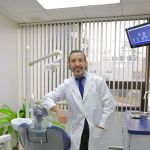How to Treat and Prevent Cold Sores: Effective Tips for Healing and Relief
- 1. What Are Cold Sores?
- 2. Causes and Triggers of Cold Sores
- 3. How to Treat Cold Sores
- 4. Preventing Cold Sores: Tips for Long-Term Relief
- 5. Real-Life Stories of Cold Sore Prevention and Treatment







 Central Dental - Dentist Westchester NY4.0 (63 review)
Central Dental - Dentist Westchester NY4.0 (63 review) Aspen Dental - Oklahoma City, OK4.0 (618 review)
Aspen Dental - Oklahoma City, OK4.0 (618 review) Halifax Family Dental4.0 (307 review)
Halifax Family Dental4.0 (307 review) Center For Dental Sleep Health4.0 (2 review)
Center For Dental Sleep Health4.0 (2 review) East Bridgewater Dental4.0 (82 review)
East Bridgewater Dental4.0 (82 review) Picture Perfect Smile5.0 (418 review)
Picture Perfect Smile5.0 (418 review) The Importance of Oral Health Education During Pregnancy for a Healthy Pregnancy
The Importance of Oral Health Education During Pregnancy for a Healthy Pregnancy Best Tips for Brushing Your Teeth Properly for Healthy Gums: Essential Techniques for Oral Health
Best Tips for Brushing Your Teeth Properly for Healthy Gums: Essential Techniques for Oral Health Why Skipping Dental Checkups Can Lead to Bigger Oral Health Problems
Why Skipping Dental Checkups Can Lead to Bigger Oral Health Problems Advantages of Porcelain Dental Restorations
Advantages of Porcelain Dental Restorations How Can Diabetes Cause Tooth and Gum Problems? Preventing and Managing Oral Health Issues
How Can Diabetes Cause Tooth and Gum Problems? Preventing and Managing Oral Health Issues Healthy Habits for Promoting Good Oral Health and Hygiene: Tips for a Healthy Smile
Healthy Habits for Promoting Good Oral Health and Hygiene: Tips for a Healthy Smile